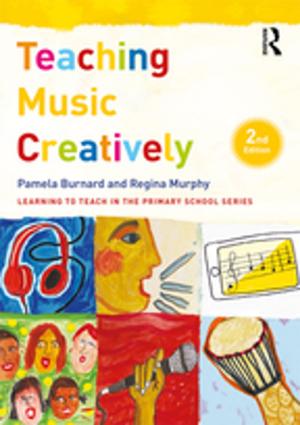Reading Poverty in America
Nonfiction, Reference & Language, Language Arts, Literacy, Education & Teaching, Educational Theory, Educational Reform| Author: | Patrick Shannon | ISBN: | 9781317935773 |
| Publisher: | Taylor and Francis | Publication: | March 14, 2014 |
| Imprint: | Routledge | Language: | English |
| Author: | Patrick Shannon |
| ISBN: | 9781317935773 |
| Publisher: | Taylor and Francis |
| Publication: | March 14, 2014 |
| Imprint: | Routledge |
| Language: | English |
In this book Shannon’s major premise remains the same as his 1998 Reading Poverty: Poverty has everything to do with American public schooling–how it is theorized, how it is organized, and how it runs. Competing ideological representations of poverty underlie school assumptions about intelligence, character, textbook content, lesson formats, national standards, standardized achievement tests, and business/school partnerships and frame our considerations of each.
In this new edition, Shannon provides an update of the ideological struggles to name and respond to poverty through the design, content, and pedagogy of reading education, showing how, through their representations and framing, advocates of liberal, conservative, and neoliberal interpretations attempt the ideological practice of teaching the public who they are, what they should know, and what they should value about equality, civic society, and reading. For those who decline these offers, Shannon presents radical democratic interpretations of the relationship between poverty and reading education that position the poor, the public, students, and teachers as agents in redistribution of economic, cultural, and political capital in the United States.
In this book Shannon’s major premise remains the same as his 1998 Reading Poverty: Poverty has everything to do with American public schooling–how it is theorized, how it is organized, and how it runs. Competing ideological representations of poverty underlie school assumptions about intelligence, character, textbook content, lesson formats, national standards, standardized achievement tests, and business/school partnerships and frame our considerations of each.
In this new edition, Shannon provides an update of the ideological struggles to name and respond to poverty through the design, content, and pedagogy of reading education, showing how, through their representations and framing, advocates of liberal, conservative, and neoliberal interpretations attempt the ideological practice of teaching the public who they are, what they should know, and what they should value about equality, civic society, and reading. For those who decline these offers, Shannon presents radical democratic interpretations of the relationship between poverty and reading education that position the poor, the public, students, and teachers as agents in redistribution of economic, cultural, and political capital in the United States.















